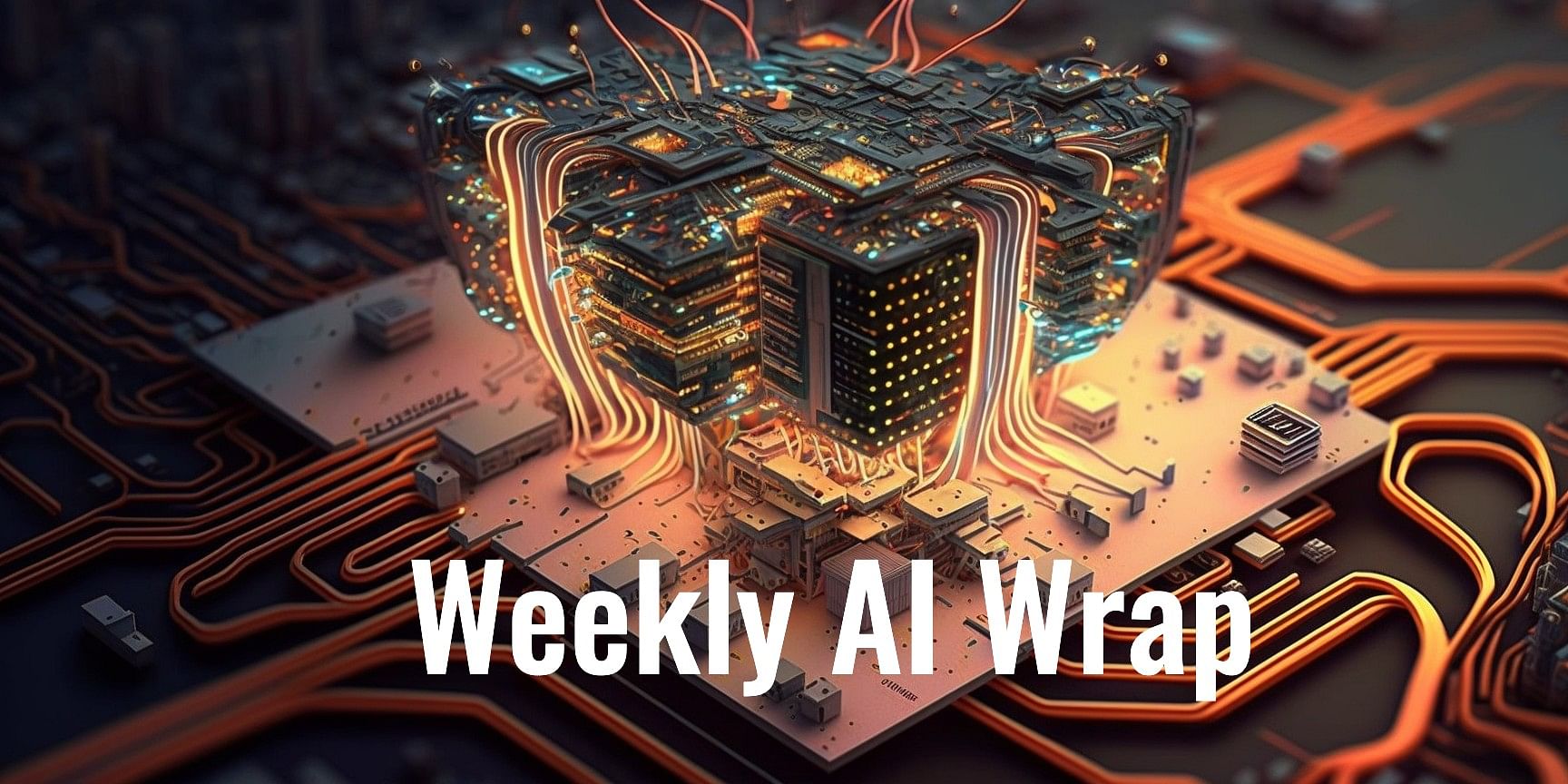Welcome to this week’s AI Wrap, where we delve into the latest advancements and news from the world of artificial intelligence. In this edition, we explore the exciting developments from Google DeepMind, breakthroughs in open-source AI projects, and the ever-growing potential of AI-powered services across various industries. As AI continues to evolve at a rapid pace, our weekly wrap is here to keep you informed and up to date on the most significant AI-related news and breakthroughs. So, without further ado, let’s dive into this week’s highlights.
- Google DeepMind, a collaboration between Google Brain and DeepMind, has been making significant progress in various areas of artificial intelligence. This partnership brings together Google’s vast resources, including a wealth of data, to develop innovative AI technologies with the potential to transform numerous industries.
- One of the recent announcements from Google is Project Magi, an AI-powered search engine designed to offer a more personalized user experience. The search engine will function as a conversational bot, offering users options for purchases, research, and more. In addition to Project Magi, Google is working on several other AI initiatives such as an AI-powered Google Earth, a music search chatbot, and a language learning tutor.
- Google’s Bard is another noteworthy development, capable of writing, explaining, debugging code, and exporting it to Colab. Meanwhile, DeepMind has created an AI program that has successfully mapped all 200 million proteins known to science in 3D.
- In the open-source AI landscape, Bark and Whisper JAX are making significant strides. Bark, a text-to-audio model, can generate content in multiple languages, while Whisper JAX is the fastest web-based transcription model, transcribing 30 minutes of audio in roughly 30 seconds.
- Open Assistant is another exceptional open-source AI project, providing a free, comprehensive dataset for an AI chatbot that rivals GPT-4 in certain use cases. Open-source AI is inching closer to commercial AI models, with initiatives such as LlamaAcademy, LLaVA, and MiniGPT-4 working on teaching models to read API documentation, interpret images, and perform visual tasks, respectively.
- Elon Musk, the CEO of Tesla and SpaceX, has revealed his plans to develop TruthGPT, an AI focused on understanding the nature of the universe, despite previously calling for a pause on AI advancements. This move comes shortly after Larry Page, the co-founder of Google, declared Google’s goal to create artificial general intelligence (AGI).
- AI advancements are impacting various sectors, from gaming to music, with AI-generated songs and NPC characters in virtual reality becoming more prevalent. NVIDIA’s text-to-video research and Adobe’s text-to-video editing tools are also demonstrating rapid improvement.
- Legal concerns are emerging with the use of AI, such as the Tom Brady lawsuit and the German magazine facing legal action for using an AI-generated interview with Michael Schumacher. AI is also being used to assist lawyers and provide financial advice through platforms like Finchat.
- The integration of AI and augmented reality (AR) is creating unique applications in fields like cooking and 3D knowledge mapping. Wearable AI devices, such as Humane’s AI-powered projector, are set to change daily life in the coming years.
These advancements signal a new era for AI applications, and as technology continues to evolve, the potential applications and impact on various industries will become increasingly apparent.










